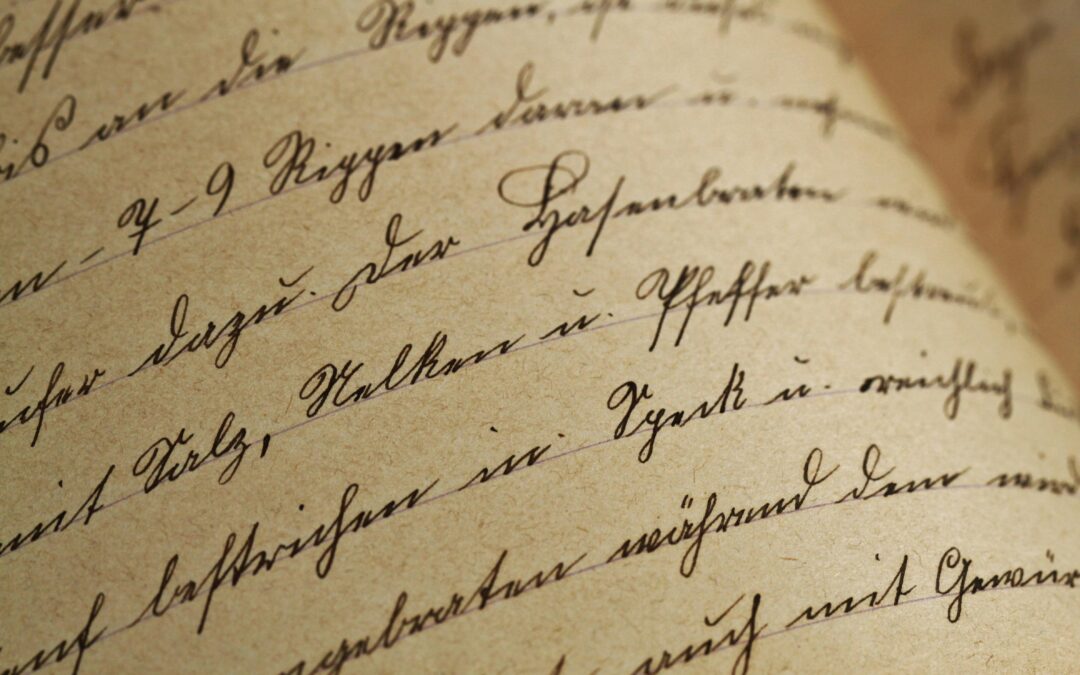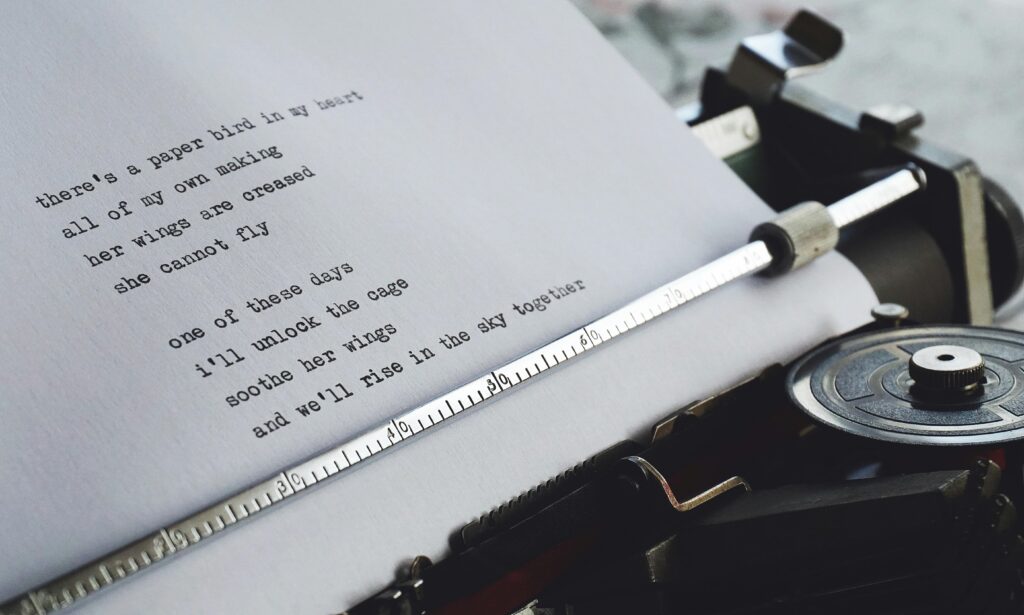
Expand Your Imagination Through Creative Writing
Creative writing is a form of self-expression that encompasses a wide range of genres, styles, and techniques, from poetry and short stories to novels, essays, and memoirs. At its core, creative writing is about exploring the depths of our imagination, tapping into our emotions, and crafting narratives that captivate, inspire, and resonate with readers.
Examples of Creative Writing
To spark your imagination and inspire your own creative endeavors, here are a few examples of different forms of creative writing:
- Poetry: Poems come in many shapes and forms, from traditional sonnets and haikus to free verse and experimental poetry. Explore the rhythm, imagery, and language of poetry to convey emotions, ideas, and experiences in a concise and powerful way.
- Short Stories: Short stories are brief works of fiction that focus on a single event, character, or theme. Dive into the world of short fiction and explore the art of storytelling, character development, and plot twists within the confines of a limited word count.
- Flash Fiction: Flash fiction, also known as micro fiction or sudden fiction, is a form of ultra-short storytelling characterized by its brevity and conciseness. Challenge yourself to craft compelling narratives in 1,000 words or less, capturing moments of revelation, surprise, or transformation.
- Creative Nonfiction: Creative nonfiction blends elements of storytelling with factual accuracy, allowing writers to explore real-life events, experiences, and perspectives in a narrative form. Experiment with memoirs, personal essays, travel writing, and narrative journalism to share your own truths and insights with readers.
A Few Famous Writers
There are countless famous creative writers who have made significant contributions to literature across various genres and time periods. Here are just a few notable examples:
- William Shakespeare: Widely regarded as one of the greatest playwrights in the English language, Shakespeare’s works, including “Hamlet,” “Romeo and Juliet,” and “Macbeth,” continue to be celebrated for their rich language, complex characters, and timeless themes.
- Jane Austen: Known for her wit, social commentary, and keen insight into human nature, Austen’s novels, such as “Pride and Prejudice,” “Sense and Sensibility,” and “Emma,” remain beloved classics of English literature.
- Charles Dickens: A prolific novelist of the Victorian era, Dickens wrote many iconic works, including “Great Expectations,” “A Tale of Two Cities,” and “Oliver Twist,” which vividly depicted the social issues and injustices of his time.
- Virginia Woolf: A leading figure of the modernist movement, Woolf’s experimental novels, such as “Mrs. Dalloway,” “To the Lighthouse,” and “Orlando,” challenged traditional narrative conventions and explored themes of identity, memory, and consciousness.
- Ernest Hemingway: Known for his spare and economical prose style, Hemingway’s works, including “The Old Man and the Sea,” “A Farewell to Arms,” and “For Whom the Bell Tolls,” captured the disillusionment and existential angst of the early 20th century.
- Toni Morrison: A trailblazing novelist and Nobel laureate, Morrison’s powerful and lyrical works, such as “Beloved,” “Song of Solomon,” and “The Bluest Eye,” explored the African American experience with depth, empathy, and mythic resonance.
- Gabriel García Márquez: A master of magical realism, García Márquez’s novels, including “One Hundred Years of Solitude,” “Love in the Time of Cholera,” and “Chronicle of a Death Foretold,” blend fantastical elements with vivid depictions of Latin American life and history.
Creative Writers of the 21st Century
In the 21st century, numerous creative writers have made significant contributions to literature across various genres. Here are some notable examples:
- J.K. Rowling: Best known for the “Harry Potter” series, Rowling’s imaginative storytelling has captivated readers of all ages and made her one of the most successful authors of contemporary literature.
- Haruki Murakami: A Japanese author whose surreal and atmospheric novels, such as “Norwegian Wood,” “1Q84,” and “Kafka on the Shore,” have earned him international acclaim and a devoted following.
- Chimamanda Ngozi Adichie: A Nigerian author known for her powerful storytelling and exploration of themes such as identity, race, and gender. Her novels, including “Half of a Yellow Sun,” “Americanah,” and “Purple Hibiscus,” have won numerous awards and garnered critical acclaim.
- Zadie Smith: A British author known for her insightful and humorous exploration of contemporary life and multiculturalism. Her novels, such as “White Teeth,” “On Beauty,” and “Swing Time,” have earned her widespread praise and literary awards.
- Elena Ferrante: An Italian author known for her Neapolitan Novels series, which explores the lives and friendships of two women from childhood to old age against the backdrop of post-war Italy. Ferrante’s works have been widely translated and adapted for television.
- Ta-Nehisi Coates: An American author and journalist known for his incisive commentary on race, politics, and culture. Coates’s books, including “Between the World and Me” and “The Water Dancer,” have earned him critical acclaim and numerous awards, including the National Book Award.
- Sally Rooney: An Irish author whose novels, such as “Conversations with Friends” and “Normal People,” explore themes of love, friendship, and identity with sensitivity and nuance. Rooney’s works have been praised for their sharp dialogue and incisive portrayal of contemporary relationships.
- Ocean Vuong: A Vietnamese-American poet and novelist known for his lyrical and evocative writing style. Vuong’s debut novel, “On Earth We’re Briefly Gorgeous,” received widespread acclaim for its exploration of identity, family, and the immigrant experience.
These are just a few examples of the many influential and celebrated creative writers whose works continue to resonate with readers around the world.

Creative Writing as a Career
It is possible to make a career out of creative writing, although it often requires dedication, persistence, and versatility. Creative writing encompasses various forms and mediums, including novels, short stories, poetry, screenwriting, playwriting, journalism, copywriting, blogging, and more. Here are some avenues through which you can pursue a career in creative writing:
- Authorship: Many writers aspire to become published authors, writing novels, short stories, or poetry collections for traditional publishing houses or self-publishing their work. While the path to publication can be challenging and competitive, successful authors can earn income through book sales, royalties, and advances.
- Freelance Writing: Freelance writers work on a project-by-project basis, providing writing services to clients such as magazines, websites, businesses, and nonprofit organizations. Freelance writing opportunities may include articles, essays, reviews, marketing copy, ghostwriting, editing, and more. Freelancers often enjoy flexibility in their schedules and can work from home or remotely.
- Journalism: Journalists write news articles, features, and investigative pieces for newspapers, magazines, online publications, radio, television, and digital media outlets. While journalism requires strong research and reporting skills, it offers opportunities to cover a wide range of topics, including current events, politics, culture, science, and human interest stories.
- Screenwriting: Screenwriters write scripts for film, television, streaming platforms, and other visual media. Screenwriting requires a specialized skill set, including storytelling, dialogue, character development, and understanding of visual storytelling techniques. Successful screenwriters may work independently or collaborate with producers, directors, and production companies.
- Content Creation: Content creators produce written content for digital platforms, including blogs, websites, social media, and online publications. Content creation opportunities may include blogging, copywriting, content marketing, social media management, email newsletters, and digital storytelling.
- Teaching and Academia: Some writers pursue careers in teaching creative writing at schools, colleges, universities, writing workshops, and community education programs. Additionally, writers with advanced degrees may pursue careers in academia, conducting research, publishing scholarly articles, and teaching literature and creative writing at the collegiate level.
- Editorial Work: Editors work with writers to refine and polish their writing for publication. Editorial roles may include developmental editing, copyediting, proofreading, and manuscript evaluation for publishing houses, literary magazines, academic journals, and freelance clients.
While a career in creative writing can be fulfilling and rewarding, it often requires perseverance, flexibility, and a willingness to adapt to the evolving publishing landscape. Building a successful career in creative writing may involve a combination of honing writing skills, networking, building a platform or audience, seeking opportunities for publication, and continuously developing one’s craft and expertise.
Tips to Get Started with Creative Writing
Ready to unleash your creativity and start writing? Here are some tips to help you get started on your own creative writing journey:
- Find Your Inspiration: Seek inspiration from your own life experiences, observations, and imagination. Keep a journal, jot down ideas, and pay attention to the world around you for inspiration.
- Experiment with Different Genres: Explore different genres, styles, and forms of creative writing to find what resonates with you most deeply. Don’t be afraid to step outside your comfort zone and try new things.
- Create a Writing Routine: Set aside dedicated time each day or week to write, whether it’s early in the morning, late at night, or during your lunch break. Consistency is key to developing your skills and cultivating your creativity.
- Read Widely and Wisely: Read voraciously across different genres and styles to expand your literary horizons, learn from the masters, and discover new techniques and approaches to storytelling.
- Join a Writing Community: Connect with other writers, join writing groups or workshops, and seek feedback and support from fellow creatives. Sharing your work with others can provide valuable insights, encouragement, and motivation along your writing journey.
- Embrace the Editing Process: Writing is rewriting. Embrace the editing process as an opportunity to refine your ideas, polish your prose, and craft a compelling narrative that resonates with readers.
Whether you’re a seasoned writer or a beginner exploring the joys of creative expression, there’s something magical about the art of creative writing. So pick up your pen, open your heart, and let your imagination soar as you embark on your own writing adventure.
